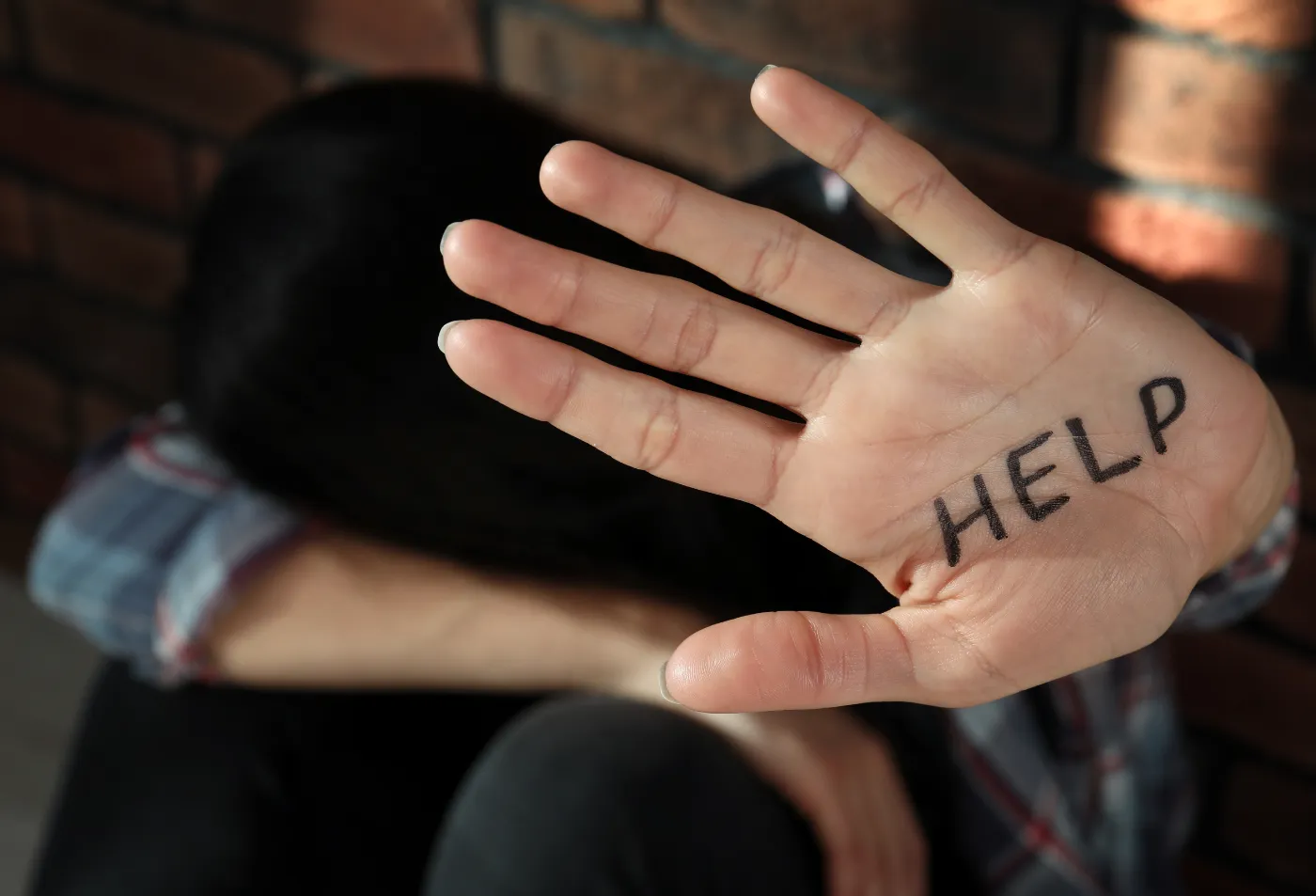Recklessly Causing Grievous Bodily Harm or Wounding Domestic Violence Related

Recklessly Causing GBH or Wounding in Domestic Violence Cases
Being charged with recklessly causing grievous bodily harm or wounding in a domestic context is a serious matter with complex legal implications. At Brightstone Legal, we have extensive experience in defending clients facing these charges across Australia. Our team focuses on delivering tailored strategies to achieve the best possible outcome.
Key considerations in these cases include:
- Serious injuries can lead to long imprisonment.
- Domestic relationship factors may trigger protective orders like ADVOs.
- Defence strategies such as self-defence or duress can reduce penalties.
If you are facing charges or want to understand your options, our team at Brightstone Legal can guide you through each stage of the legal process. Contact us today for a confidential consultation and expert advice tailored to your situation.
Recklessly causing grievous bodily harm (GBH) or wounding is a serious criminal offence under section 35 of the Crimes Act 1900 (NSW). When the offence occurs in the context of a domestic relationship, it is treated with particular seriousness by the courts and carries aggravated penalties.
Under section 35(1), (2), and (4) of the Crimes Act 1900, it is an offence to:
- Cause grievous bodily harm (GBH) to another person recklessly (i.e. foreseeing the possibility of serious injury but proceeding anyway), or
- Wound another person recklessly.
When these offences are domestic violence related, they fall within the scope of Crimes (Domestic and Personal Violence) Act 2007 and may trigger the making of an Apprehended Domestic Violence Order (ADVO) alongside criminal charges.
Reckless wounding is an offence found under Section 35 of the Crimes Act 1900. This is categorised as a ‘Table 1’ offence, meaning that it is dealt with in the Local Court unless the Defence or Prosecution has elected to have it heard in another matter.
- If this matter is dealt with in the Local Court, the maximum penalty is 2 years imprisonment.
- Otherwise, the offence carries a maximum penalty of 7 years imprisonment, or 10 years if the offence was committed in company.
Definitions
- Grievous Bodily Harm (GBH): Includes serious injuries such as broken bones, internal organ damage, permanent disfigurement, and fetal death (excluding lawful medical procedures).
- Wounding: Involves breaking both layers of the skin, such as deep cuts or puncture wounds.
- Recklessness: The accused did not intend to cause the injury but was aware that their actions could result in harm and proceeded anyway.
ADVO Implications
In domestic violence cases, police will typically apply for a provisional ADVO, which may impose conditions such as preventing the accused from contacting or approaching the victim. If convicted, a final ADVO is most likely to be made to protect the victim.
Elements the Prosecution Must Prove
To secure a conviction, the prosecution must establish the following elements beyond a reasonable doubt:
1. The Existence of a Domestic Relationship
- Marriage or de facto partnership (current or former)
- Family members living together (e.g., parents and children)
- Carer relationships (e.g., caregiver for an elderly or disabled person)
- Relatives of the protected person
- Indigenous kinship relationships
2. Elements of the Offence
- The accused’s actions caused GBH or wounding.
- The injury was the direct result of reckless behaviour.
- The accused foresaw the potential for harm but proceeded regardless.
In order to be found guilty of recklessly causing GBH, the prosecution must prove:
- That the accused person wounded another person
- That the accused person was reckless in causing actual bodily harm to that person or another person
Possible Defences
A strong legal defence can significantly impact the outcome of your case.
Common defences include:
- Self-defence – Acting to protect oneself or another from imminent harm.
- Duress – Being coerced or threatened into committing the act.
- Necessity – Acting to prevent greater harm.
One of the most common defences for this offence is self-defence.
Potential Penalties
Penalties for recklessly causing GBH or wounding vary based on case severity and individual circumstances. Possible outcomes include:
- Imprisonment – The most common penalty, with an average term of 36 months (18 months non-parole).
- Fines – Court-imposed monetary penalties.
- Good behaviour bonds – Supervised release with strict conditions.
- Community-based orders – Mandated community service or rehabilitation.

Legal Process
& Options
Being charged with recklessly causing grievous bodily harm or wounding in a domestic violence context is a serious matter. The legal process can be confronting and complex; however, understanding your options at each stage is vital.
Pleading
Not Guilty
If you plead not guilty, Brightstone Defence will, depending on the evidence and instructions, build a strong defence strategy based on:
- Lack of intent to cause fear or harm
- Misidentification or false accusations
- Insufficient evidence presented by the prosecution
- Lawful excuse for your actions
Our legal team will carefully review police evidence, cross-examine witnesses, and present a defence strategy tailored to achieving the best possible outcome.
Pleading
Guilty
If the evidence against you is strong and a conviction is likely, pleading guilty early may lead to a more favourable outcome. Benefits of an early guilty plea may include:
- Reduced penalties
- Avoiding a full-time custodial sentence
Before entering a plea, it is important to consult Brightstone Defence to understand the legal consequences and determine the best course of action.
Yes, coercive control is about psychological and emotional abuse, not physical violence.
You can be charged even if there is no physical injury.
- Yes.
A conviction for coercive control results in a criminal record, which may affect your employment, travel and visas, child custody matters and your reputation. Coercive control is a serious charge, making it essential to seek legal advice when proceeding with your matter.
It depends. If there is an ADVO in place with a condition that you do not approach or contact the person in need of protection, you must not contact the protected person, even if they contact you first. If you breach your ADVO you will be charged with a separate criminal offence.
If you are charged, under investigation or unsure about your situation, it is essential to contact Brightstone Defence as soon as possible to ensure your rights are protected and to obtain professional advice tailored to your case.
- Yes.
If the choking is non-consensual and done intentionally, it is viewed as an escalation for violence and is a standalone criminal offence even if no injury has occurred.
- No.
Only the police and prosecution can decide whether a charge proceeds, even if the alleged victim wants to withdraw the charge.
Yes. Choking is a separate and more serious offence, even if no visible injury occurs.
It has its own section in the Crimes Act 1900 (NSW) and is viewed as high-risk conduct in domestic settings.
Yes. Imprisonment is a real possibility, especially if:
- You have prior domestic violence convictions
- The choking was prolonged or violent
- Children were present
- The court believes that there is a risk of harm in the future
Yes. If convicted, this offence will be on your criminal record, which can affect employment, visas, travel, and your reputation. It is crucial to obtain expert legal advice to know your options.
If you have been charged or are under investigation for choking, suffocation or strangulation, it is essential to contact Brightstone Defence immediately to understand your rights and obtain professional representation.
An offence is classed as domestic violence related if it involves a person that is or has been in a domestic relationship with the accused. This could be:
- A partner or an ex-partner
- Family member
- Housemate
- Someone you care for, or that cares for you
In these cases, the police will most likely apply for an ADVO as well.
Depending on your circumstances, the court will consider:
- The seriousness of the injury
- Your criminal history
- Whether you plead guilty early
- If you have taken any steps to rehabilitation, such as anger management or counselling
- Whether you have shown remorse for your actions
The most probable outcomes include non-custodial sentences, such as good behaviour bonds, fines or community correction orders. However, gaol is a real possibility dependent on your specific circumstances, especially for repeat or violent offenders.
- No.
In NSW, the police and prosecution decide whether charges proceed, not the victim. Even if the alleged victim wants to ‘drop the charges’, only the courts can remove the order or if the prosecution believes there is not enough evidence to prosecute you.
Yes. If you are convicted, you will likely receive a criminal record. This will affect your:
- Employment and licencing
- Working with children’s clearances
- Overseas travel
- Family law matters
However, in certain circumstances your lawyer may argue for a non-conviction outcome, such as a section 10 dismissal or a conditional release order (CRO) without conviction.
It is important that you seek professional legal advice prior to making decisions about your case. Domestic Violence charges are taken seriously in NSW and can result in significant penalties if not dealt with properly. Brightstone Defence is here to help you.
Yes. Absolutely, it is recommended that you seek legal representation. AOABH is a serious charge with serious consequences. Your lawyer will:
- Explain your rights and options thoroughly
- Challenge the evidence
- Negotiate with police and prosecutors
- Represent you in court
- Help you in obtaining the best possible outcome
It is a criminal offence to intentionally or recklessly destroy or damage someone else’s property without lawful excuse. This can include:
- Breaking furniture, windows, or electronics
- Damaging a phone to prevent a call for help
- Keying a car or smashing belongings during an argument
It is domestic violence related if the accused and victim are in a domestic relationship, such as:
- Current or former partners
- Family members
- Housemates
- Co-parents
Even if the property is jointly owned or belongs to the offender, the offence can still be DV-related if it is part of an act of control, fear, or abuse.
It can be if the property is shared, jointly owned, or intended for someone else’s use. For example:
- Smashing a shared phone or TV
- Burning belongings during a breakup
- Damaging property to intimidate or punish a partner
- Smashing a partner’s phone to prevent them calling for help
- Punching holes in walls during arguments
- Breaking or throwing household items
- Damaging a vehicle or pet’s belongings to cause fear or retaliation
- No. Even temporary or minor damage can be enough, for example:
- Spilling paint on someone’s clothing
- Scratching a surface
- Cutting up clothes or photos
The key is that some damage was caused, and it was not accidental.
- Yes. In domestic violence matters, police often must proceed with charges once they believe a crime has occurred, even without the victim’s cooperation.
No. It can involve:
- Threatening gestures
- Raising a fist
- Verbal threats that cause genuine fear of immediate violence
Physical contact (like slapping or grabbing) can also count as common assault if it does not result in grievous bodily harm.
Yes. A single act of:
- Hitting
- Pushing
- Threatening to harm
…can be charged as common assault, particularly in a domestic violence context.
Yes. In domestic violence cases, police can and often must lay charges even if the victim:
- Does not want to proceed
- Changes their statement
- Fails to attend court
This ensures protection for victims from pressure, fear, or coercion.
Yes. If convicted, a person may receive:
- A criminal conviction
- Fines, community corrections orders, or jail (in serious cases)
A conviction can affect employment, travel, and future legal matters.
Victims of domestic violence can access:
- 1800 RESPECT (24/7 national helpline)
- NSW Victims Services
- Legal Aid, domestic violence liaison officers, and court support services
- Safe housing, counselling, financial assistance
Reckless means the offender:
- Knew or should have known their actions could cause serious injury, but
- Went ahead anyway without regard for the consequences.
- Intentional GBH: The offender meant to cause serious injury.
- Reckless GBH: The offender didn’t intend the injury but knew it could happen and took the risk.
Intentional offences generally carry heavier penalties.
- Yes. If they acted recklessly (e.g., hitting someone with a weapon or during a violent outburst) and serious injury occurred, they can be charged even if they didn’t intend that level of harm.
- No. Once police lay charges, only the police or prosecution can withdraw them. The victim’s views may be considered but they cannot unilaterally drop charges.
A history of domestic violence can:
- Make bail harder to get
- Lead to harsher sentencing
- Justify a long-term ADVO
- Be considered an aggravating factor under sentencing laws
- Yes. Police can apply for an Apprehended Domestic Violence Order (ADVO) on the victim’s behalf, sometimes even without their request. It can:
- Prohibit the offender from contacting or approaching the victim
- Impose strict conditions on behaviour
- Be made interim (temporary) or final depending on the situation
Examples include:
- Threats of violence
- Harassment via social media or messages
- Property damage
- Surveillance or repeated unwanted presence
- Yes. The law covers current and former partners, family members, or any person in a domestic relationship with the victim.
- Yes. Police often apply for a provisional AVO to protect the victim immediately. If the matter goes to court, the AVO can be made final.
- Call 000 if in immediate danger.
- Report to local police.
- Keep a record of incidents (messages, photos, notes).
- Seek support from a domestic violence service, such as 1800RESPECT, White Ribbon Australia, or Mission Australia.
“Domestic relationship” includes:
- Spouses or de facto partners (current or former)
- People who live together
- Relatives (including by marriage)
- People in a care relationship
- Individuals with a shared parenting relationship (even if no longer together)
- Stalking: Involves following, surveilling, or contacting someone repeatedly in a way that causes fear.
- Intimidation: Broader — includes threats, harassment, or any conduct that makes someone fear for their safety or wellbeing.
Both are criminal offences under the same provision when done with intent to cause fear.
- Our experienced domestic violence criminal defence lawyers can provide immediate advice, assess your case, and guide you on the best legal strategy to protect your rights and achieve the best possible outcome.
- A Criminal lawyer can help you by:
- Explaining your rights and the legal process.
- Assessing whether you have valid defence.
- Negotiating with prosecutors to reduce charges or penalties.
- Preparing your case for court and advocating on your behalf.
- Helping minimise the impact on your future, such as avoiding a criminal record.
- Early legal advice can significantly improve your chances of a favourable outcome.
Reckless means the offender:
- Knew or should have known their actions could cause serious injury, but
- Went ahead anyway without regard for the consequences.
- Intentional GBH: The offender meant to cause serious injury.
- Reckless GBH: The offender didn’t intend the injury but knew it could happen and took the risk.
Intentional offences generally carry heavier penalties.
- Yes. If they acted recklessly (e.g., hitting someone with a weapon or during a violent outburst) and serious injury occurred, they can be charged even if they didn’t intend that level of harm.
- No. Once police lay charges, only the police or prosecution can withdraw them. The victim’s views may be considered but they cannot unilaterally drop charges.
A history of domestic violence can:
- Make bail harder to get
- Lead to harsher sentencing
- Justify a long-term ADVO
- Be considered an aggravating factor under sentencing laws
- Yes. Police can apply for an Apprehended Domestic Violence Order (ADVO) on the victim’s behalf, sometimes even without their request. It can:
- Prohibit the offender from contacting or approaching the victim
- Impose strict conditions on behaviour
- Be made interim (temporary) or final depending on the situation
- Yes. The law covers current and former partners, family members, or any person in a domestic relationship with the victim.
- Yes. Police often apply for a provisional AVO to protect the victim immediately. If the matter goes to court, the AVO can be made final.
“Domestic relationship” includes:
- Spouses or de facto partners (current or former)
- People who live together
- Relatives (including by marriage)
- People in a care relationship
- Individuals with a shared parenting relationship (even if no longer together)
- Our experienced domestic violence criminal defence lawyers can provide immediate advice, assess your case, and guide you on the best legal strategy to protect your rights and achieve the best possible outcome.
- A Criminal lawyer can help you by:
- Explaining your rights and the legal process.
- Assessing whether you have valid defence.
- Negotiating with prosecutors to reduce charges or penalties.
- Preparing your case for court and advocating on your behalf.
- Helping minimise the impact on your future, such as avoiding a criminal record.
- Early legal advice can significantly improve your chances of a favourable outcome.
SUCCESS CASES & ARTICLES
Brightstone Defence delivers focused criminal defence services year-round and has built a strong track record of successful outcomes.
Meet our lawyers
WORLD CLASS
REPRESENTATION
100+ 5 Star Reviews
Personalised legal strategies tailored to each case
Recognised leaders in criminal defence law
Free initial consultation and case evaluation
Proven success in high-stakes and complex cases
Get AN instant estimated Quote
and a free consultation session
Facing criminal charges? Our experienced criminal defence lawyers are here to help. Book your free consultation now to discuss your case and understand your options.










